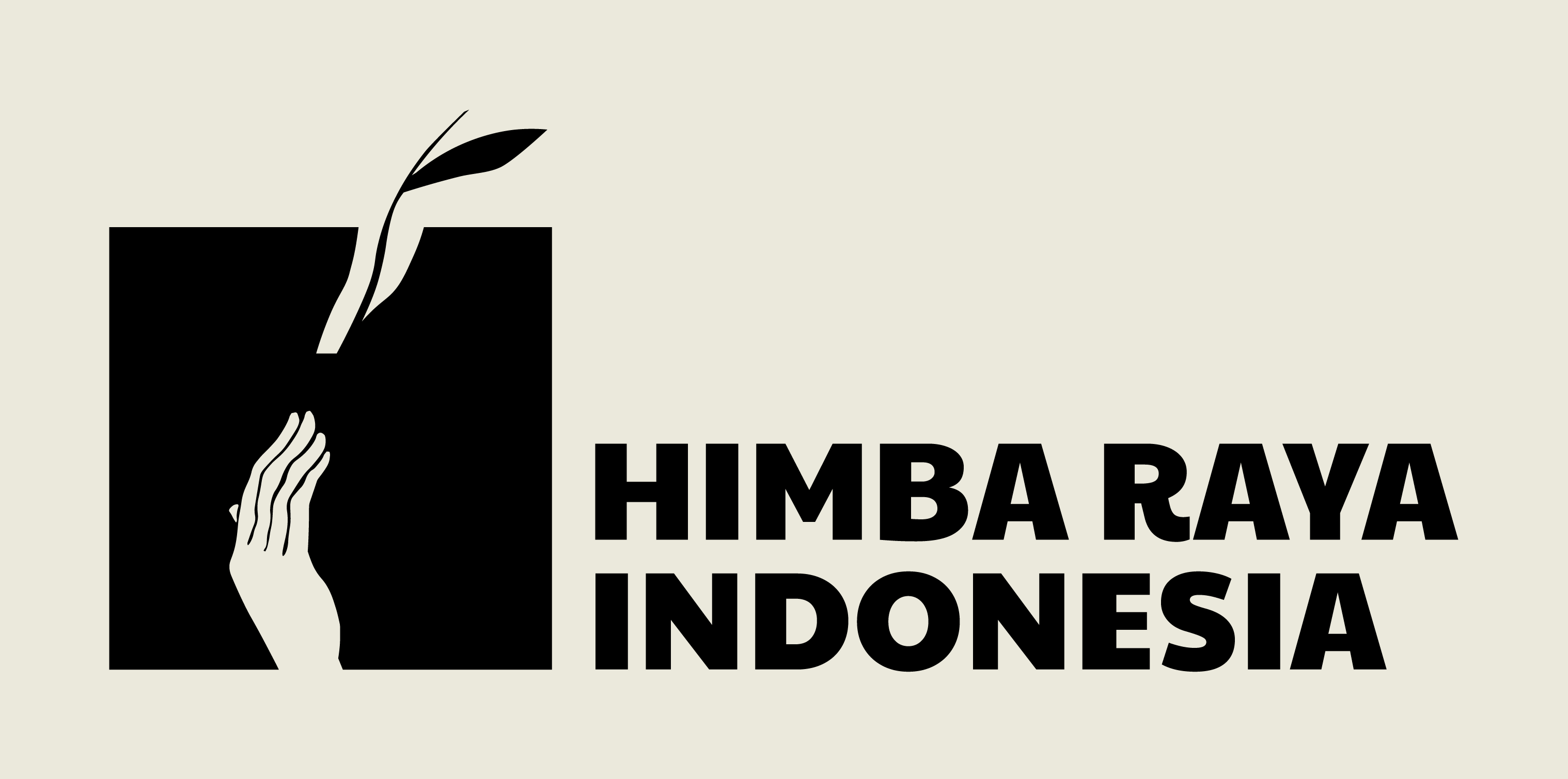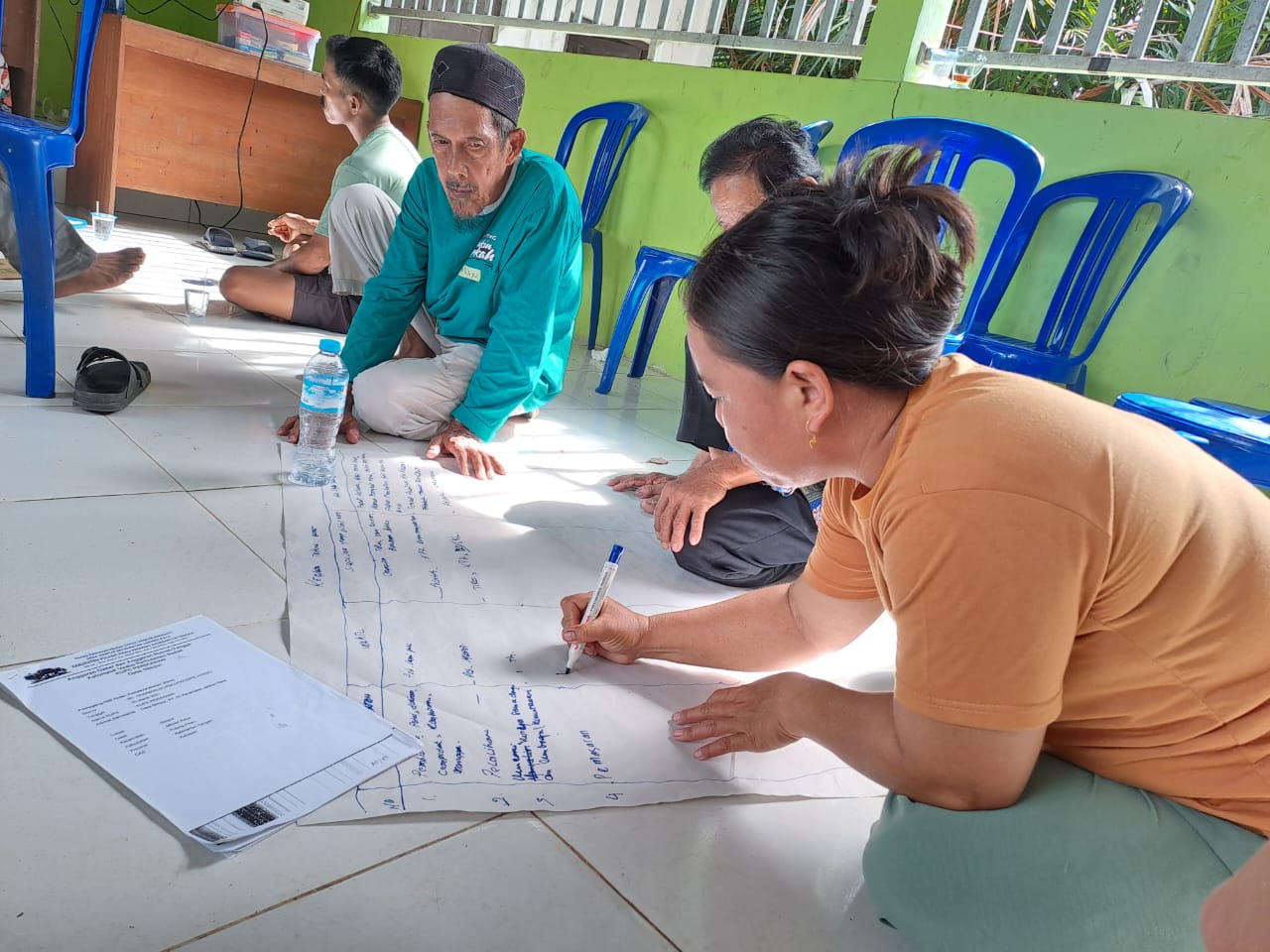Strengthening Institutional Training Activities of Social Forestry (HKm) in Simpur Village
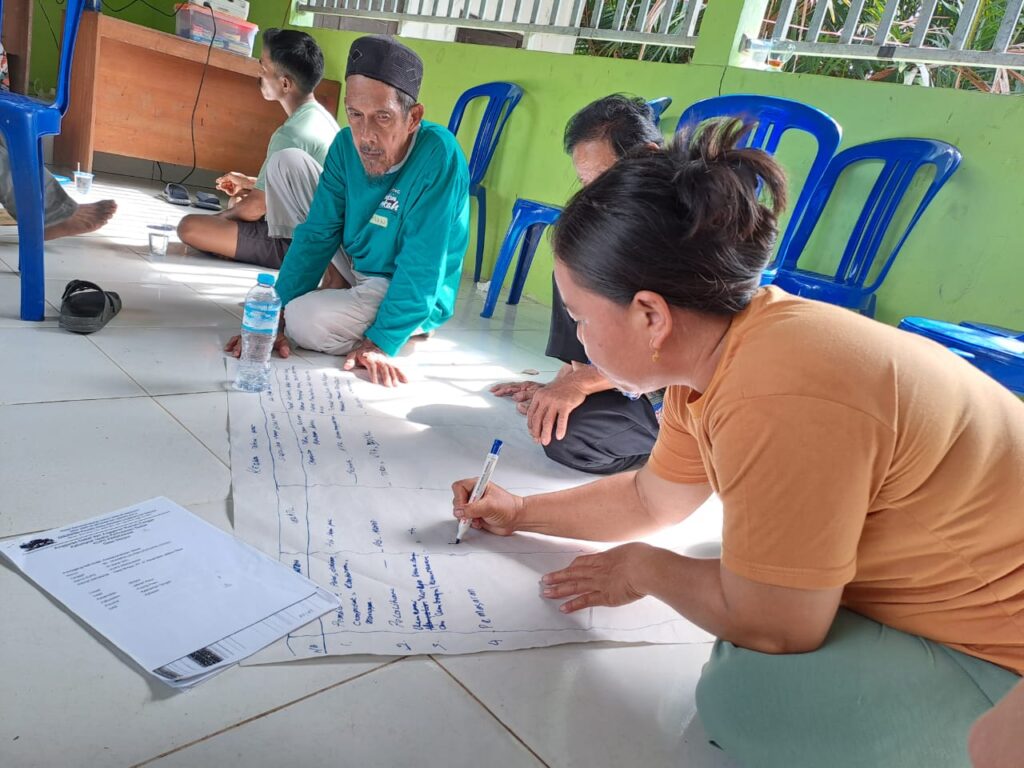
On January 28, 2025, Simpur Village hosted the Strengthening Institutional Training for Community/ Social Forests (HKm) Simpur Basewot, which lasted for five days. This activity was initiated by the HIRAI Foundation and involved various parties, including HKm administrators, social forestry business groups (KUPS), and relevant government agencies.
Opening and Objectives of the Activity
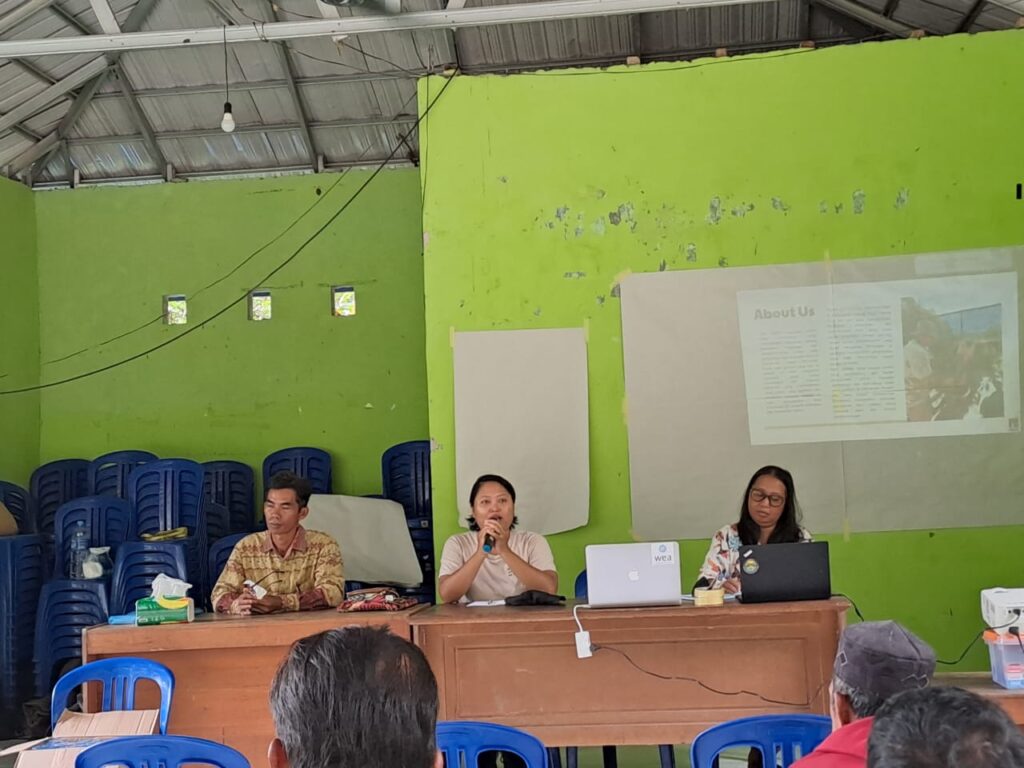
The event was opened with a speech from the Chairman of HKm Simpur Basewot, who emphasized that this activity was an initial step in collaboration with HIRAI. In his speech, the Chairman of HKm also introduced the four KUPS in the village, namely KUPS Agroforestry, KUPS Fisheries, KUPS Livestock, and KUPS Stingless Bee Honey.
A representative from HIRAI, Mrs. Yun Paratiwi, expressed appreciation for the implementation of this activity and explained HIRAI’s vision and mission in environmental restoration, community development, and cultivation. One of HIRAI’s main focuses is tree planting in the Pulang Pisau area, which is prone to forest fires.
Preparation of the 2025 Annual Work Plan
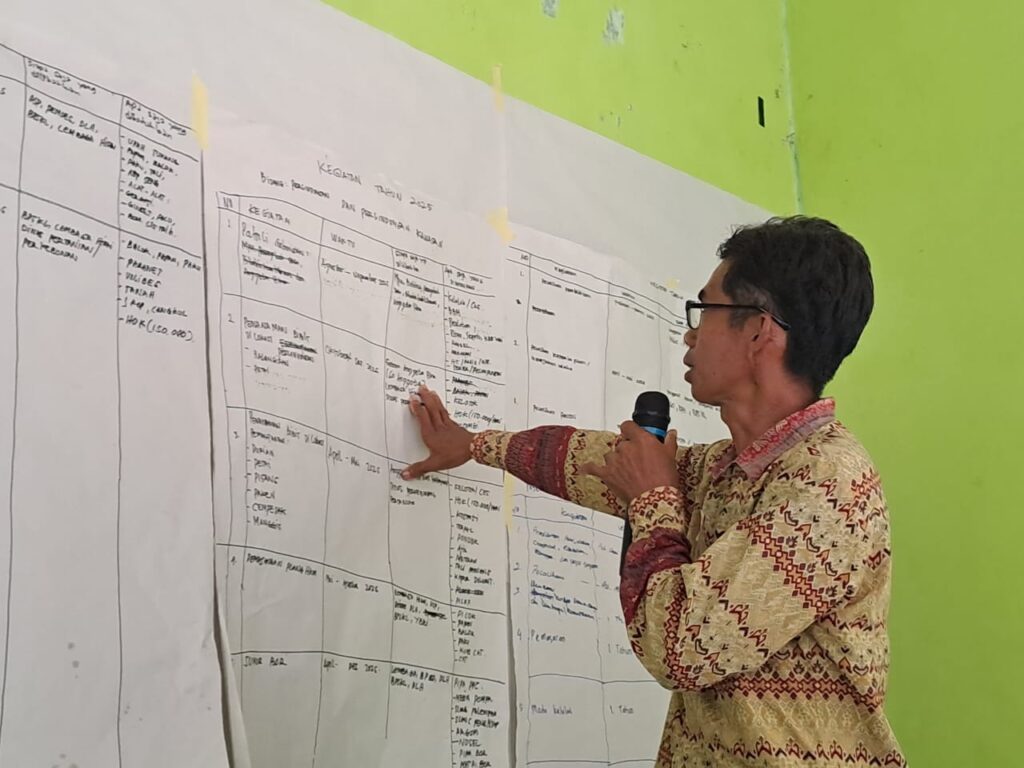
During the training, participants discussed the preparation of the 2025 Annual Work Plan (RKT). This was necessary as the last available RKT was from 2022. The 2025 RKT covers various aspects, including the preparation of the organizational structure, the formation of sections, and planning business activities in each KUPS.
Additionally, discussions on the drafting of a Memorandum of Understanding (MOU) between HIRAI and HKm Simpur Basewot became a key focus. This MOU is expected to strengthen cooperation and ensure the sustainability of the village’s social forestry program.
New Organizational Structure of HKm Simpur Basewot
To strengthen the institution, the organizational structure of HKm Simpur Basewot was updated by adding several new sections, including:
- Section for Protection and Security of the Area
- Section for Strengthening Institutions and Human Resources
- Section for Business Development
The formation of these sections aims to improve the effectiveness of managing community forests, including aspects of protection, capacity building of members, and more structured business management.
KUPS Work Program for 2025
Each KUPS has developed a work program for 2025. Below are the main plans from each KUPS:
- KUPS Agroforestry
- Seedling cultivation of plants such as petai, durian, cempedak, and vegetables.
- Training in cultivation and agricultural product processing.
- Submission of cooperation proposals to relevant institutions.
- KUPS Fisheries
- Construction of fish cages and fish farming training.
- Collaboration with the Fisheries Department and local markets.
- Marketing of fish products through social media and distribution networks.
- KUPS Livestock
- Development of pig and chicken farming businesses.
- Provision of cages, feed, and livestock vaccinations.
- Processing livestock products into value-added products.
- KUPS Stingless Bee Honey
- Development of stingless bee honey cultivation.
- Improving production and packaging quality.
- Expanding marketing through exhibitions and social media.
SWOT Analysis and Risk Mitigation
As part of business planning, each KUPS conducted a SWOT analysis to identify strengths, weaknesses, opportunities, and threats. Some identified risks included climate change, plant pests, price fluctuations, and lack of member involvement. Proposed solutions include enhanced training, marketing optimization, and strengthening cooperation with external parties.
This activity concluded with the presentation of discussion results from each KUPS and follow-up plans. One of the main outcomes of this activity is the shared commitment to strengthen HKm institutions and enhance community business capacity. With support from various parties, Simpur Village is expected to become a successful example of sustainable community forest management.
